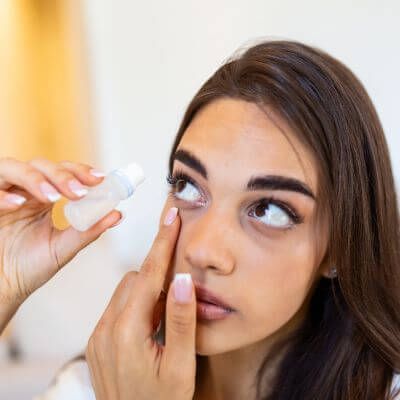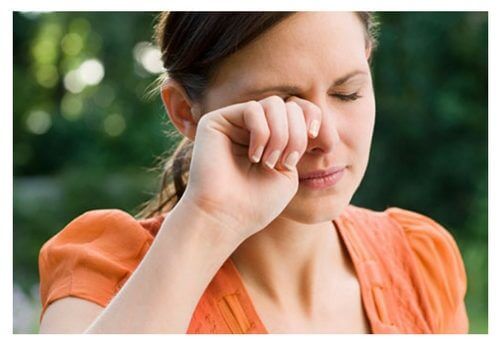5 Ways UV Rays Damage Your Eyes & Vision
 You already knew that prolonged exposure to the sun increases your chances of sunburns and skin cancer, but were you aware that it can also negatively affect your vision? What’s more, UV rays can damage your eyes and vision year-round! Ultraviolet light is a constant threat to your eyes, regardless of the weather.
You already knew that prolonged exposure to the sun increases your chances of sunburns and skin cancer, but were you aware that it can also negatively affect your vision? What’s more, UV rays can damage your eyes and vision year-round! Ultraviolet light is a constant threat to your eyes, regardless of the weather.
To better understand the threat, you need to:
- Understand how ultraviolet light works
- How UV rays can damage your eyes and vision
- How to protect your eyes and vision from UV damage
Protecting yourself from the threat of UV rays to your eyes and vision is a year-round job. Fortunately, there are some very simple steps you can take to ensure healthy eyes and vision for years to come. Our hope is that you will be more motivated to use adequate protection once you understand the threat UV rays pose to your eyesight.
Understanding How Ultraviolet Light Works
Vision and eye safety are affected by two types of ultraviolet light :
- UVA: low-energy radiation that can harm the macula, which is located in the deepest part of the eye. This can be harmful to one’s central vision if left unprotected. While not as powerful as UVB, it is much more prevalent.
- UVB: affects the cornea and lens in the shallow part of the eye by damaging the tissue. It is often considered the more dangerous of the two types of ultraviolet light and is the cause of sunburns.
Natural UV-C rays are entirely absorbed by our atmosphere. However, artificial sources such as LEDs and mercury lamps used for disinfecting still pose a danger. Prolonged exposure can result in temporary damage to eyes and skin with the effects lasting for a couple of days. In the worst cases, exposure has been linked to skin cancer.
Most people are aware that UVA and UVB light pose a danger in the warmer months and especially during the summer. However, not as many are aware that they actually pose a threat all year long. Clouds offer very little protection from ultraviolet light and winter presents its own dangers to the health of your eyes and vision, which we discuss below.
How UV Rays Can Damage Your Eyes and Vision
There are a variety of ways in which UV rays can damage your eyes and vision. While this list is not exhaustive, it does cover some of the most common negative effects UV rays have on your eyes. Understanding the dangers that UV rays present can help motivate you to protect yourself every day of the year.
Photokeratitis
Photokeratitis is the inflammation of eyeball tissue and is similar to a sunburn on your skin. In fact, the condition is so similar to sunburnt skin that it’s also known as corneal sunburn . The skin-like tissue of the eyeball is extremely sensitive and can be damaged after just a few hours of UV exposure.
Photokeratitis isn’t just a summer condition. It can occur during any time of year, especially if you’re in a reflective environment. This can occur in bodies of water like lakes and oceans, sandy beaches, and snow. Take snowblindness, for example. Snow blindness occurs in high altitudes and during high ground reflection. Fresh snow can reflect up to 80% of UV rays, as can water and sand, making it extremely important to wear eye protection even if you don’t think it’s necessary.
Cataracts
Cataracts occur with varying severity as people age and are the leading cause of blindness worldwide. UVB rays amplify the deterioration of the eye’s lens, producing a clouding of the lens that results in reduced vision. Severe deterioration of the eye’s lens can eventually lead to blindness.
Pterygium & Pinguecula
Pterygium is a growth found on the conjunctiva, which is a membrane that covers the front of the eye as well as the insides of your eyelids. They’re a common cosmetic issue that may result from UV exposure. However, prolonged exposure can cause the growth to spread over the cornea and lead to loss of vision. Fortunately, they can be removed surgically.
Pinguecula occurs as a raised area inside the conjunctiva. They are described as feeling like a bump on your eyeball and are white or yellow in color. Pingueculas are most common in sandy, dusty areas and are easily treated with eye drops.
Macular Degeneration
The macula is part of the retina, which converts images and light into nerve signals which are delivered to the brain. The macula helps this process by making vision sharper and more detailed. Unfortunately, UV rays contribute to macular degeneration as we age, which contributes to the loss of central vision. The result of macular degeneration is blurry vision when looking directly at an object.
How to Protect Your Eyes & Vision from UV Damage
Despite the dangers posed by UV radiation, there are a few simple steps everyone can take to protect themselves. The most important precaution is to wear sunglasses. They must block as much UV radiation as possible as well as 75 – 90% of visible light. Wrap-around sunglasses are best for preventing UV light from getting into your eyes from the corners of your sunglasses.
Another important precaution you can take is to wear a wide-brim hat or one that at least provides shade for your eyes. This will help prevent UV radiation from getting into your eyes in the first place and make your sunglasses even more effective.
Key Takeaways
There are plenty of ways UV rays can damage your eyes and vision. Fortunately, there are also plenty of treatments. Remember that UV rays are a constant danger, regardless of the weather or season. Taking the threat seriously will keep your vision clearer for longer.
Always wear UV-protective sunglasses and a hat to help protect your eyes and vision when outside for long periods of time. They will work together to protect your eyes from both the short-term and long-term damage caused by UVA and UVB radiation.
If you think you may be experiencing eye or vision damage due to UV rays, then please schedule a consultation with an eye doctor at Baptist Eye Surgeons. We are located in Knoxville, TN, and Morristown, TN where we provide services from comprehensive eye exams to complex eye surgeries. Call us at 865-579-3920 for more information or to schedule an appointment.


MORRISTOWN
SEVIERVILLE
TENNESSEE VALLEY - LASER CENTER
TENNESSEE VALLEY - EYE CENTER



